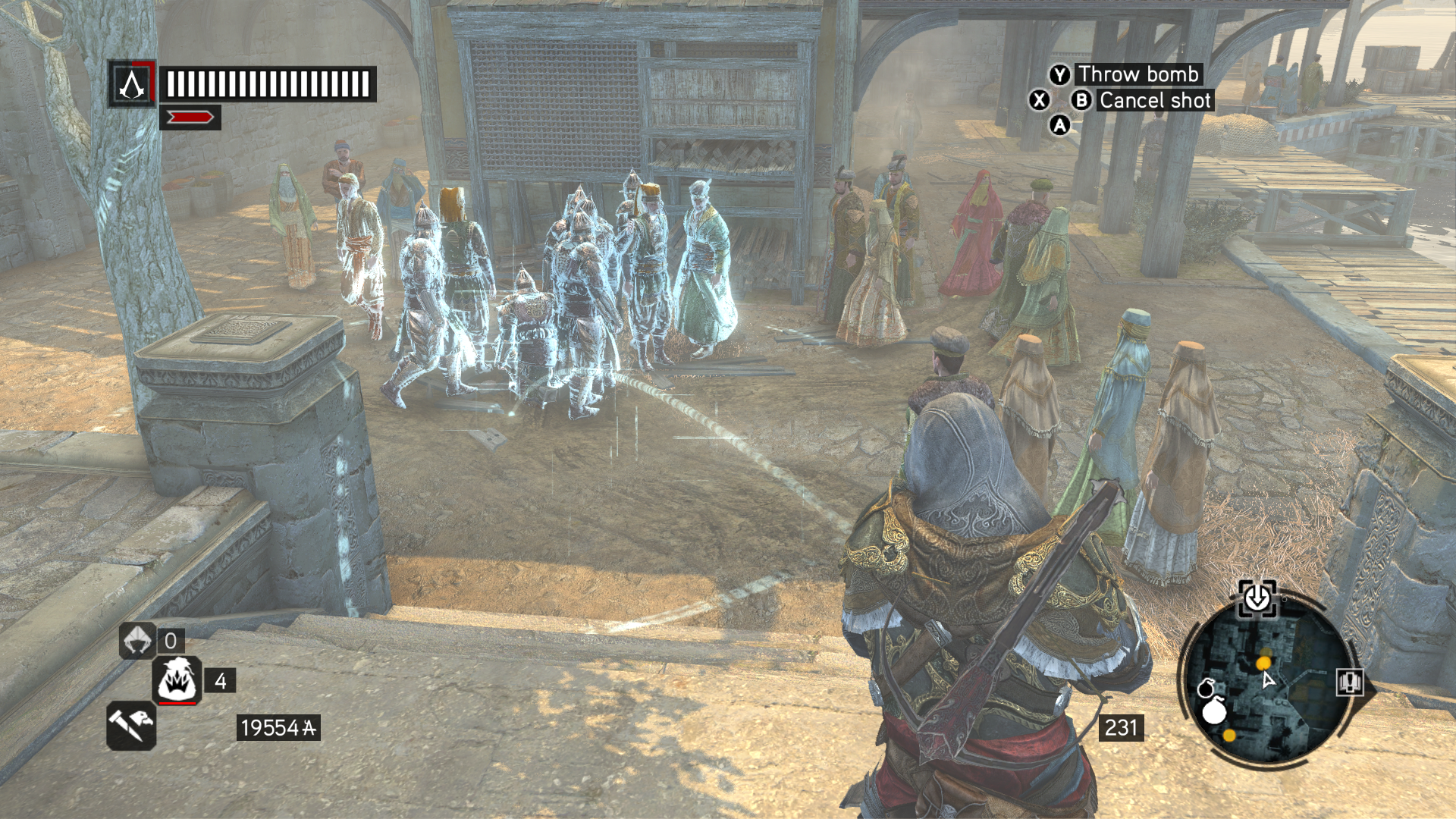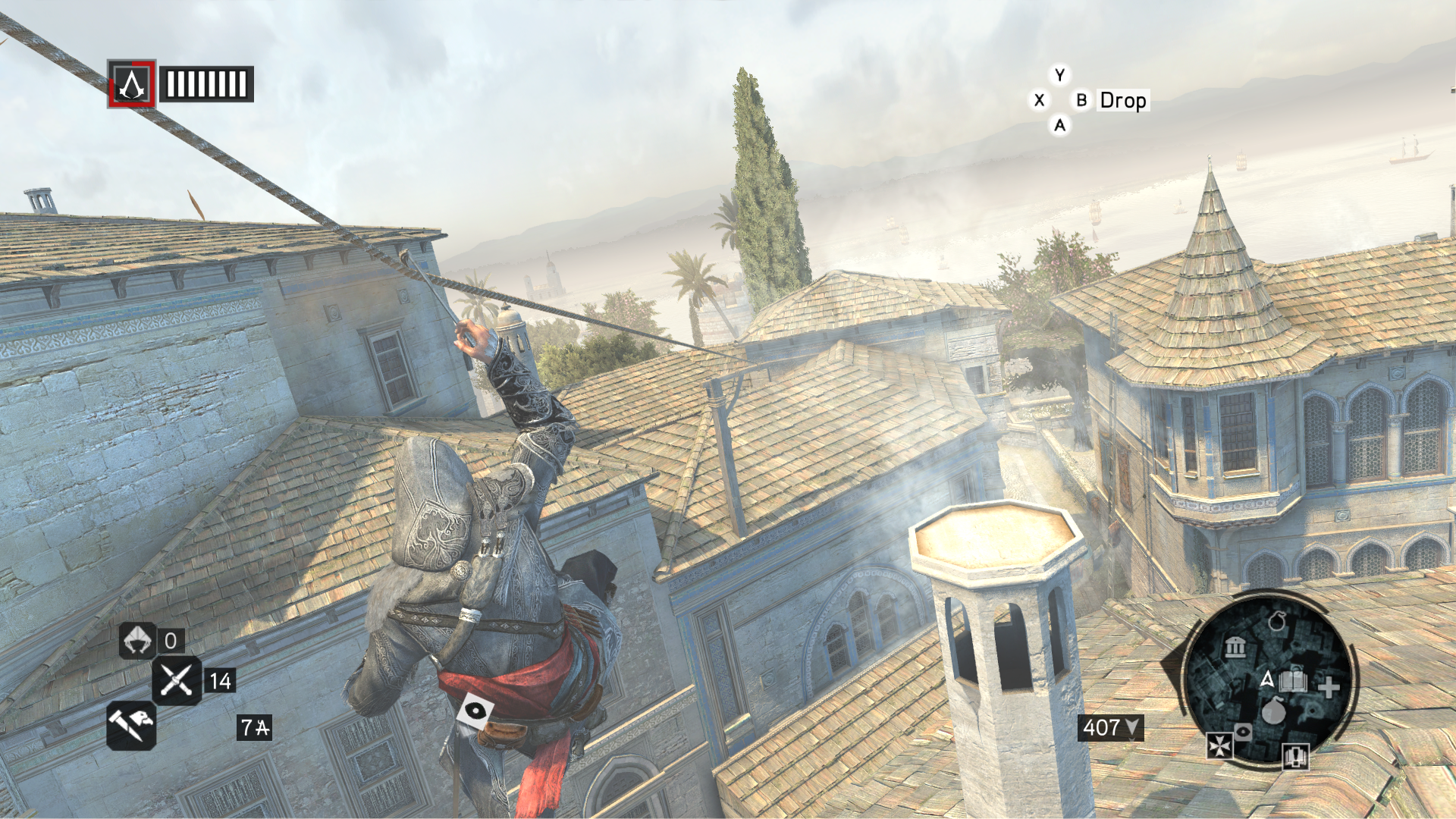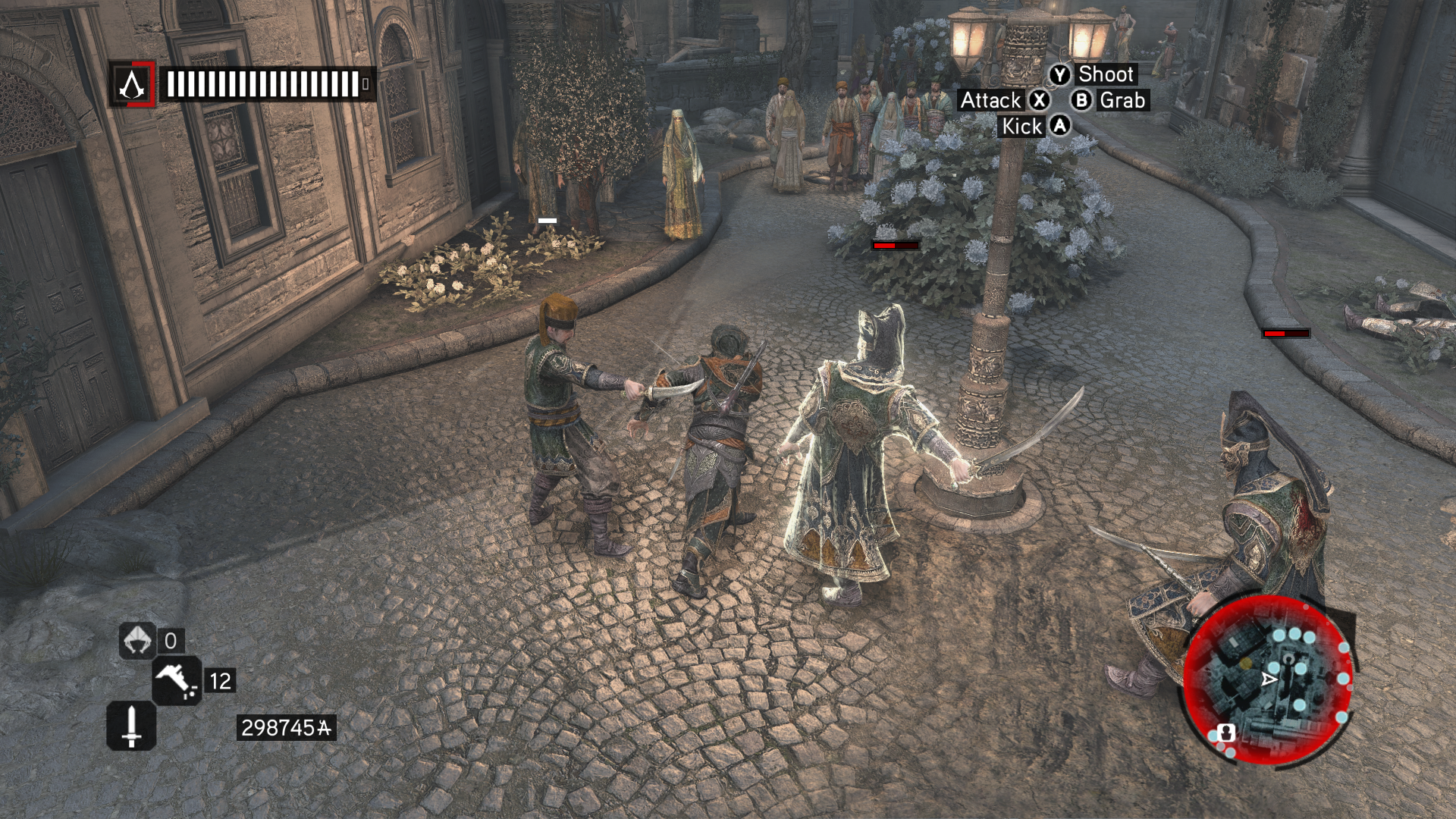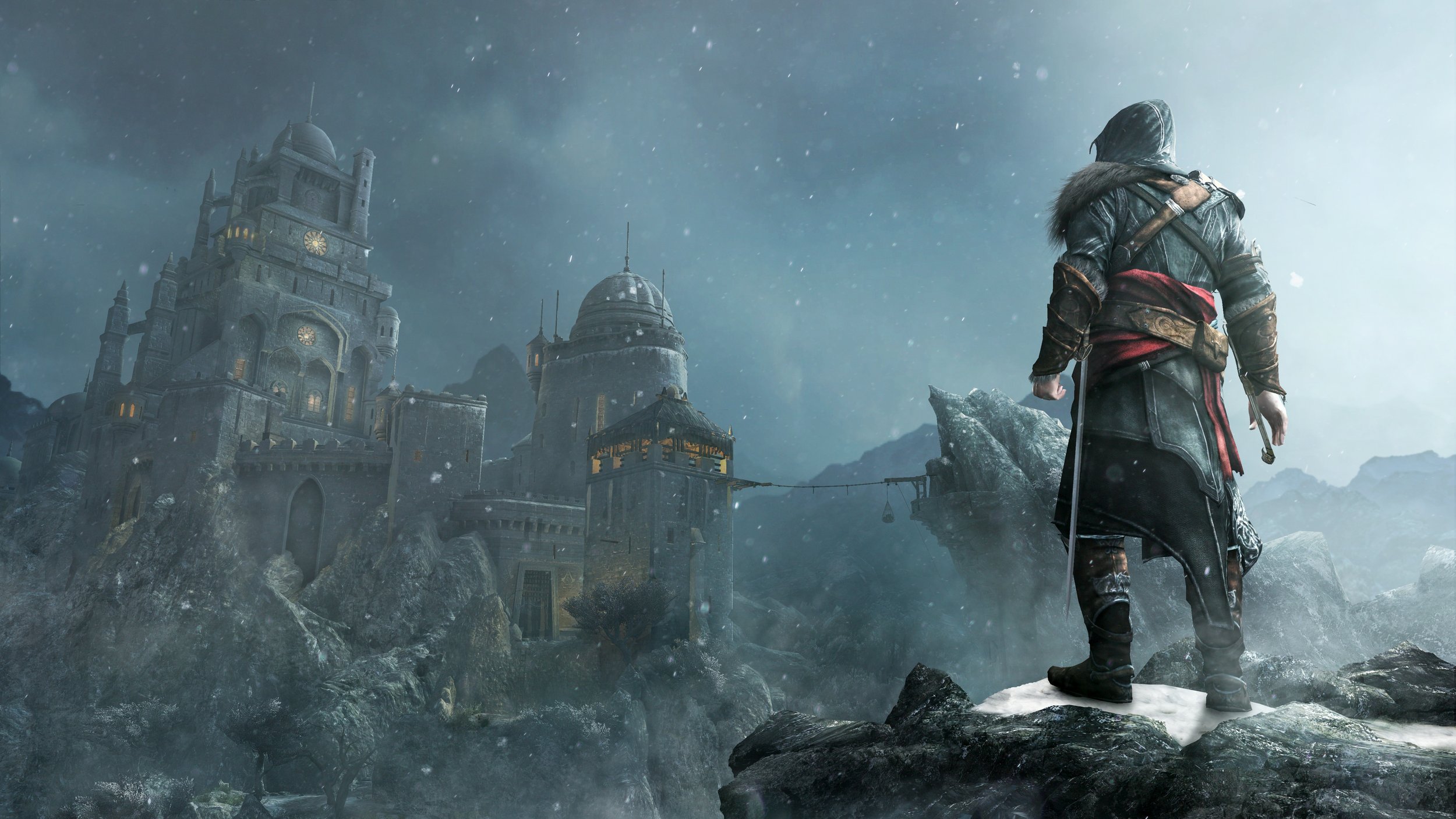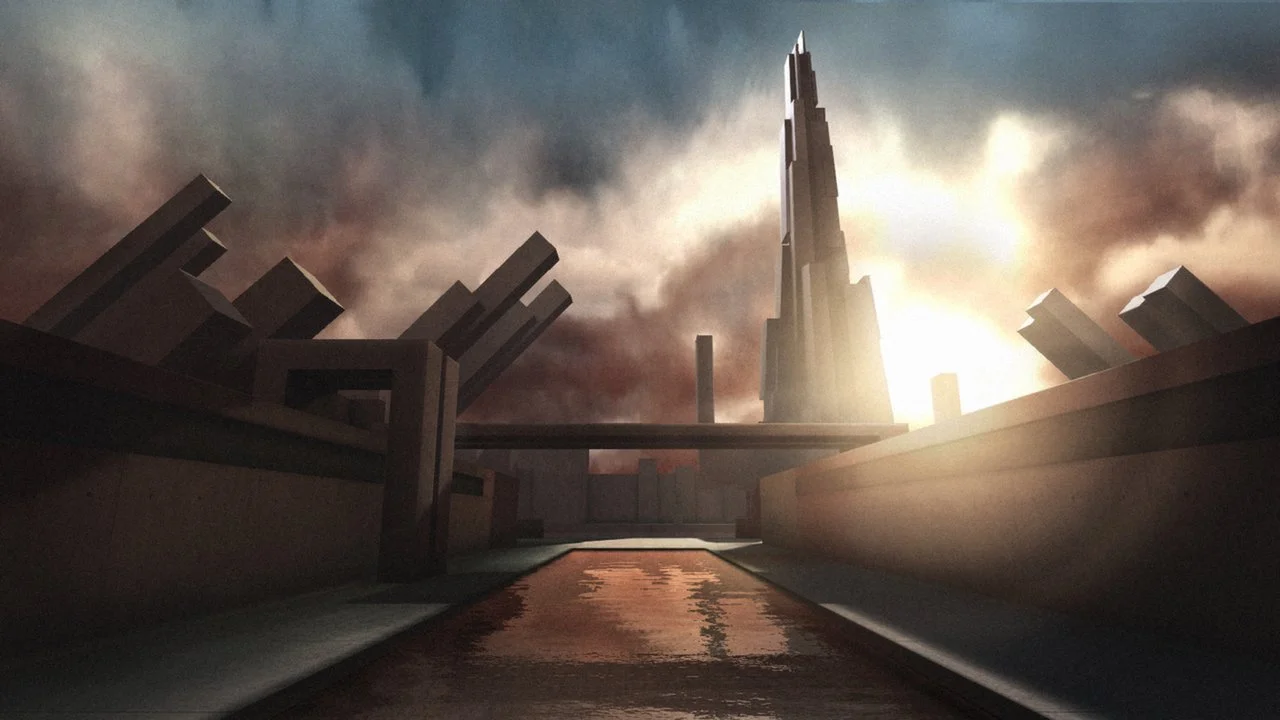Assassin’s Creed Revelations Review
Played on Xbox Series X
Developed by Ubisoft Montreal
Released 15th November 2011
With heavy developmental power poured into 'Assassin's Creed III' and raving results from 'Assassin's Creed Brotherhood', Ubisoft needed to fill the gap in their annual release cycle between their well-received 2010 title and their highly-anticipated 2012 sequel. Scrapping a project previously intended for the Nintendo 3DS, Ubisoft would later reuse the plot and setting of the mobile game to be translated into another mainline entry. With this development process, the cracks were starting to show with Ubisoft's money-hungry goals as 'Revelations', revealed at 2011's E3, required the assistance of 5 other Ubisoft subsidiaries to achieve developmental completion on time, where they had less than a year to recreate a 3DS game, all while the creative director of the previous titles, Patrice Désilets, had no input on how the game would turn out. The result of lukewarm reviews was to be expected, as both critics and fans, knew that 'Revelations' was simply a filler episode in the long-running season of the franchise.
Despite this, as time passed, 'Revelations' would revert to cult classic status amongst 'Assassin's Creed' fans, with many praising its few new gameplay additions, its conclusive ending for the Ezio trilogy and re-traversing Altair's storyline. My previous experience with 'Revelations' was that it wasn't anything special and simply a solid journey that I wouldn't be particularly keen to replay. However, with how nostalgia-baited I got with 'Assassin's Creed Brotherhood', I didn't know what to expect going back into this game 5 years later. Ultimately, I enjoyed it more than before, possibly even more than 'Brotherhood'
Story
The story is the weakest since the original 'Assassin's Creed'. The 15-hour narrative of 'Revelations' consists of 3 overlapping storylines, with two feeling lacklustre, and the least interesting one being the primary tale being told. The first and main story here follows the Assassin and Templar conflict in Constantinople which unravels into this theme of regicide intertwined with some boring Templar conflicts that amount to very little. There are some highlights, but most appear towards the beginning where the story tries to find its footing. The second story follows Desmond in the Animus and how it links to the outside world (or how it doesn't since he's stuck in the Animus). This aspect of the narrative felt incredibly unnecessary as it added absolutely nothing to the overarching present-day Abstergo storyline, it wrapped up Subject 16's story in an unsatisfying way (despite being the most enigmatic figure since the first game) and the whole idea of Desmond being an Assassin since birth simply rubbed me the wrong way as it was a case of unnecessary "destiny" to a character that is already written to become a prophet-like figure.
The third, and best part about this whole campaign, was following Altair's memories after the first game's events. Yes, the deaths of his family feel like a forced way of adding emotion and humility to the character, but each sequence was written well, finalising his character arc much better than the first game did. All of this is mixed messily as the pacing between each memory/sequence felt rushed, making it feel even more devoid of personality, importance or care. Despite this, the ending proved to be a solid conclusion to Ezio's trilogy and 'Revelations' stands to have the best incorporation of the Pieces of Eden thus far in the series, as it is mostly restricted to word-of-mouth myths and the reveal in the finale.
Gameplay
The gameplay was the best it's been so far in the series and easily made for the most entertaining experience I've had thus far. The core gameplay loop has stayed nearly identical to before: parkour around rooftops, killing guards and targets, renovating the city for passive income and training assassin recruits to gain stronger summons. The new content is great. The introduction of the Hookblade was cool as it accelerates the speed of your climbing and how fast you traverse the dense city of Constantinople while adding depth to combat. It does scrape away the authenticity of manually climbing up buildings since the Hookblade allows for long jumps to occur automatically, but in return, it does add speed and flair to the parkour movement, especially with the additions of the ziplines and lamp-long jumps.
The combat has also received a cinematic boost as the chained execution animations have become more flashy and, while I liked the stylishness of the brutality, the extended duration of each kill did slow down an otherwise rapid combat tempo. A fine-tuned change that made for a better fighting experience was the option to have an off-hand item, adding diversity to situations and quicker decision-making. While your sword or crossbow was drawn, you could still have another item like the new bombs, pistol or throwing knives selected for quick input.
Another change to the combat is the inclusion of bombs. Possibly the best addition to the 'Assassin's Creed' arsenal, during your time in 'Revelations', you'll be able to craft various types of bombs using different shells, gunpowder variations and special ingredients that change their effect. Instant-contact smoke bombs, trip-wire shrapnel explosions, bouncy, delayed distraction blasts and more are at your disposal. This ability added depth to the planning and execution of many of my actions, from something as simple as running away from enemies to major events like assassinating targets, while providing an incentive to experiment. The limited nature of the higher-grade ingredients was also for the better, balancing the process and making each bomb type worthwhile.
This and 'Brotherhood's returning crossbow and assassin recruits make the game significantly easier but there have also been changes to try to balance this. The crossbow now doesn't one-shot every enemy and assassin recruits need to be prioritised for upgrading and allocating as Den-Masters to prevent Templar attacks (more on this in a bit). The difficulty of enemies has also increased for the better as you need a combo of bombs, parrying, dodging and more to kill them as they dodge and counteract your attacks, unlike AC2 and ACB where stringing up executions from a simple parry was more than enough to wipe out an entire squadron.
As for the Den Defence missions, they're ok. They consist of you placing assassin variants on rooftops to protect a Den from the waves of Templars - think 'Plants vs Zombies' but more stale. Finally, the map design. The entire map was covered in rooftops and alleyways which made me realise how much more I preferred 'Revelations' structure to 'Brotherhood's half-city, half-open fields map design - a whole city that is traversable via the fast parkour, making for a gratifying time. 'Revelations' may be a scaled-down 'Brotherhood' with less content and mission variety, but the few things it adds/changes made a big impact, and its coat of paint made it fresh enough for me to enjoy 100 %ing unlike how 'Brotherhood' felt to me after AC2.
Characters
While the story was greatly lacking, a small portion of the cast of characters did help redeem many of the otherwise spoiled narrative moments. Ezio continued to be this stoic yet charming Master Assassin who only truly conveys emotion during the endangerment of his closest allies. Meanwhile, the introductions of Sofia Sartor, Yusuf Tazim and Prince Suleiman provided good additions, serving a memorable personality on their own and a decently pleasant bond with Ezio. However, other characters, both new and returning, were numbing to listen to. This issue seems consistent for the whole 'Asassin's Creed' franchise as characters would feel monotone, either by delivery or dialogue, acting as nothing but a medium for exposition. Desmond has never felt more flavourless, the antagonists are forgettable (again) and even someone with such an enigmatic background and eccentric performance of Subject 16, feels like they add little to the journey. This could be potentially because of the messy story structure, rushed development cycle or lack of time that is given to flesh out the characters, but the writing this time around is nearly as poor as it was in 2007.
Atmosphere
The atmosphere has many great elements to it that work wonderfully together. Visually, the game has many strong artistic designs with the city of Constantinople initially looking similar to the state of the original 'Assassin's Creed' where its magic felt lost in the shroud of greys and browns, but soon after, the vibrancy and livelihood of the streets started to blossom. The architecture, the clothing, and the filter; all come together for a game with a strong, detailed visual design. The only aspect I wasn't too keen on throughout my time was the HUD looking very clinical, detracting from some of the beauty. Audibly, the Ezio trilogy is still the best in this department as the quality remains to be top-tier with 'Revelations'. With less of an Italian influence and more of a genuine Turkish sitar/guitar-type instrument involvement, the soundtrack remains to pop out in an alluring way, albeit not as memorable as what was offered previously. Technically, 'Revelations' was the first game in the Ezio Collection to not bug out during an achievement pop-up, seeming to be the most stable out of the three.
Story - 6/10
Gameplay - 8/10
Characters - 6/10
Atmosphere - 8.5/10
GOOD
As an open world, Constantinople was immensely entertaining to play out the assassin fantasy within, especially as Ezio. As a campaign, 'Revelations' falls behind nearly every bar set within its trilogy.
The Lost Archive DLC
Released 28th February 2012
The Lost Archive DLC is one of the weirdest DLCs Ubisoft has potentially done, and not in any good shape or form. Story-wise, the game tries to explain and present the story of Subject 16, who, up to this point, has been a completely enigmatic character with more secrets behind them than information. So how does the DLC go about telling his story? They make you play a first-person platformer while dialogue is force-fed to you. No cutscenes, no environmental storytelling, and no proper exchanges between characters - just a documentary/autobiography-style yapping session that watered down his character more than it developed. There are some cool explanations and details that lead through to the first 3 games in the series like Lucy's induction as a double spy for the Assassins and more. Still, the actual narrative of Subject 16's past is so damn plain and uninteresting that I couldn't wait to finish the expansion pack so that I could go back to achievement hunting in the base game.
The gameplay has turned into a first-person platformer where you can spawn in your own platforms, which may sound intriguing at first, but combined with the empty, bland interior of the Animus, the soulless gameplay loop and the extremely videogame-y level design, the DLC became even more mind-numbing than before. The first-person perspective isn't even done well, with the player being nothing more than a floating camera with no visible legs, and for that to translate into a monotonous platformer where the hardest challenge of the expansion pack is to avoid lasers while you stand on a moving platform, it's just terrible. The game is set in the animus and thus having a plain, white decor with random bursts of cryptic imagery makes sense, but it makes for such a boring experience, especially when there's also a lack of impactful music.
Story - 2/10
Gameplay - 3/10
Atmosphere - 2/10
Genuinely one of the worst and least creative DLCs out there.

